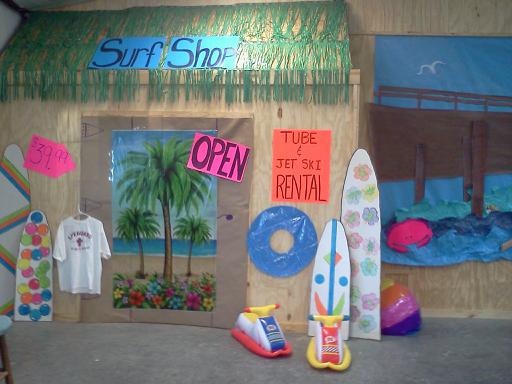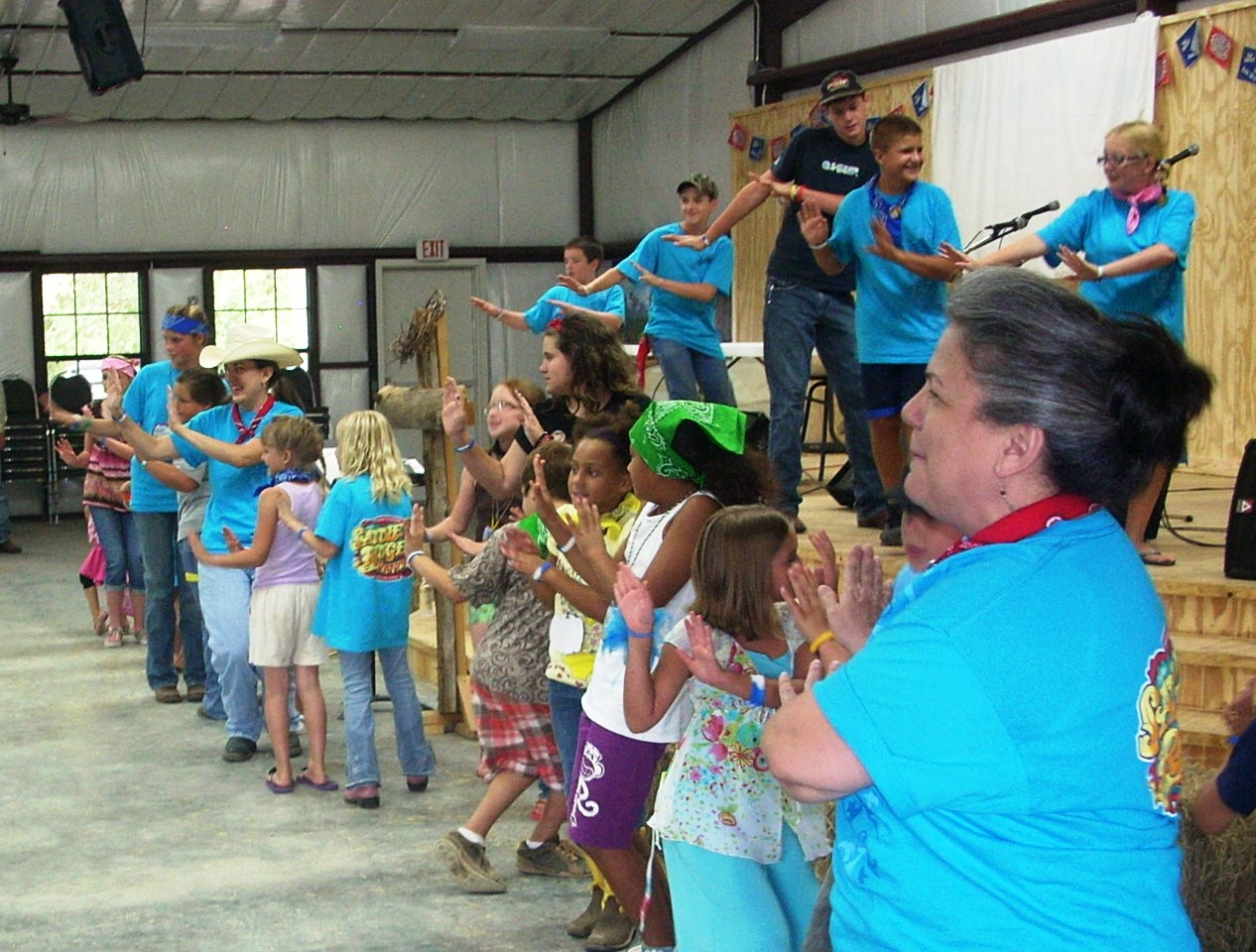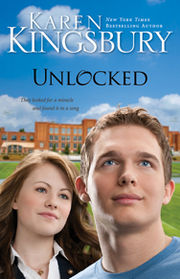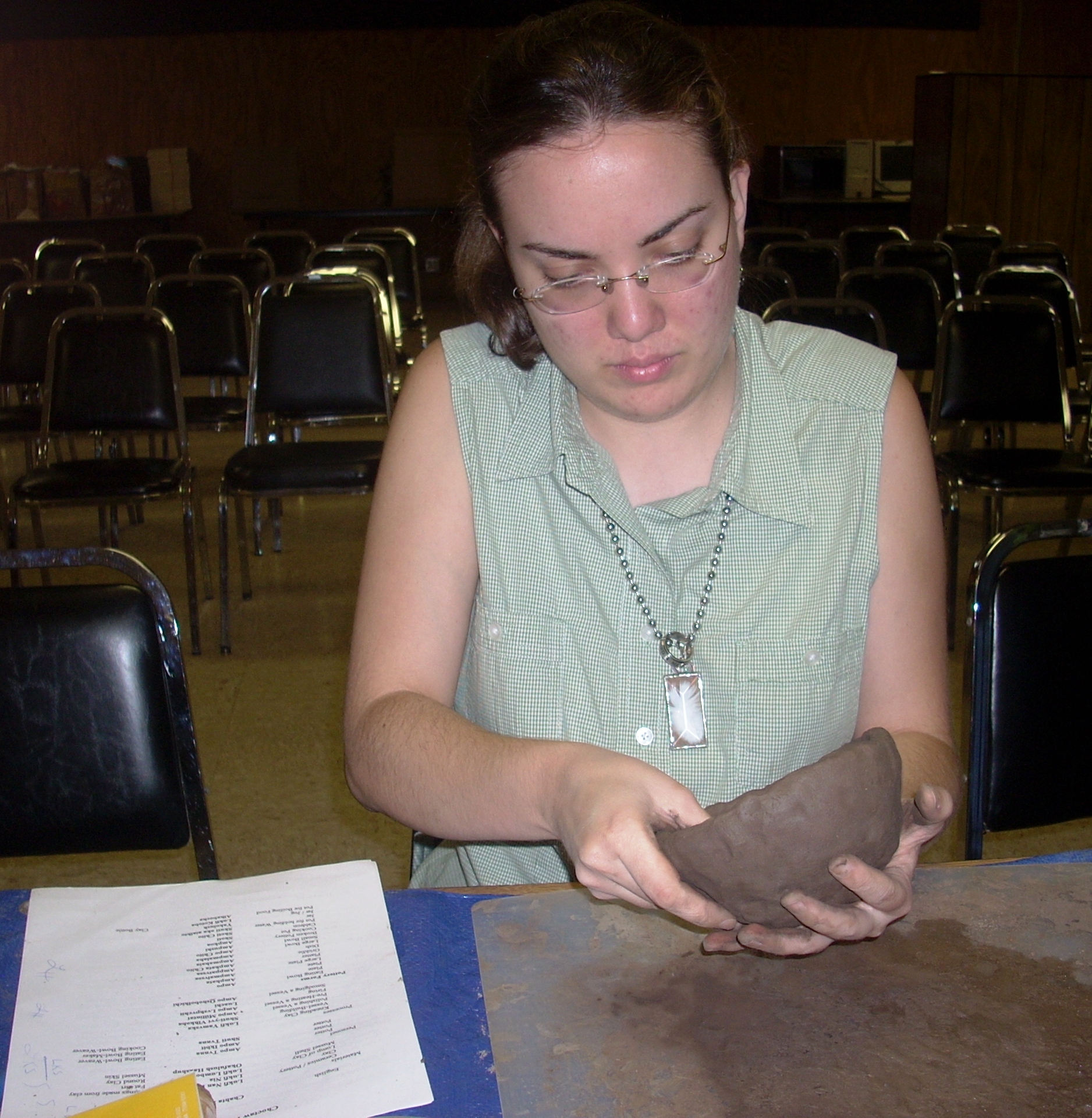You Couldn't Pay Me...
 The past four years, June has meant one thing to me: VBS (Vacation Bible School). Fun and games and work. Lots of work in the months beforehand, lots of work during, and a final push at the following Sunday service.
The past four years, June has meant one thing to me: VBS (Vacation Bible School). Fun and games and work. Lots of work in the months beforehand, lots of work during, and a final push at the following Sunday service.
In a Cowboy Church, we keep things—cowboy. But this year we broke the mold with Sonsurf Beach Bash, transforming the entire church into an Oceanside paradise.
My role during VBS, unchanged in five years (our church skipped one year), is the music leader/assemblies director. Each year, I’m never asked if I want to do it. It goes more like, “If Sarah’s not leading music, we’re not doing VBS.” Go figure.
I have to say last year, Saddle Ridge Ranch, was my absolute favorite. Though exhausting, the song lyrics, motions and the music itself were fantastic. I led the songs seven days out of nine—Saturday at the nursing home with the teens, Sunday service with the teens to promote VBS, three days of VBS, Saturday Family Night for the parents, and Sunday service with all the teens, adult leaders and kids. Just about did me in.
This was a good year, too. All the leaders were “Lifeguards” wearing red shirts that said: “LIFEGUARD. Mine Walks on Water.”
The director gave me a whistle. I felt like the lifeguards I see at the YMCA when I take my nieces swimming. They walk up and down the poolside, occasionally blowing their whistles and yelling, “Walk!” That’s fun to imitate when you have a herd of kids stampeding toward you on the stage.
As always, I started learning the songs and practicing the motions months before VBS. Weeks in advance, I went to church on Wednesday nights to practice with the teens.
Then it was time to rock the church with some non-cowboy music and giant beach balls.
Fun stuff, and I can’t get over those precious kids. I took the mic around (kids love talking into a mic) and asked them about their favorite part of VBS. At the end, I shared my own. My favorite part is the kids and their hugs.
Saturday Family Night came and I had to stop for gas on the way. At the pumps, an old motorcycle dude rolled over to my car and asked if I was a lifeguard. Where did he get that idea? Maybe it was the whistle hanging over my red shirt.
I laughed and said, “No, only at church.”
“I was just wondering, ‘cause I heard California lifeguards make a hundred thousand a year.”
He rolled off as my reply formulated. A hundred thousand a year, eh?
With the congregation Saturday night and on Sunday morning, I shared the story and my unspoken reply.
“You couldn’t pay me to do this!”
Besides, in my mind, I make WAY more than that. I see the influence I’m having on the kids and their futures, and I know I’m making more than money. I’m laying up treasures in Heaven, where moths or thieves or the government can’t break in and steal.
”But lay up for yourselves treasures in heaven, where neither moth nor rust destroys and where thieves do not break in and steal.” Mat. 6:20 NKJV
And guess what? Our pastor’s grandson gave his heart to Jesus at Sonsurf Beach Bash.
“Let the little children come to Me, and do not forbid them; for of such is the kingdom of heaven.” Mat. 19:14
For Him,
Sarah Elisabeth








